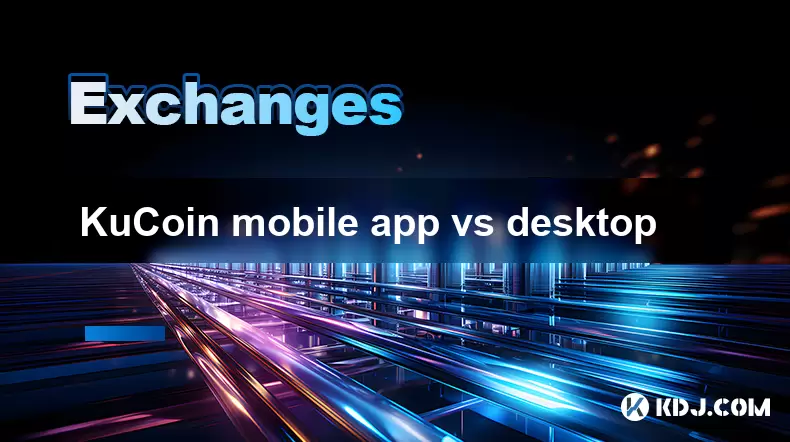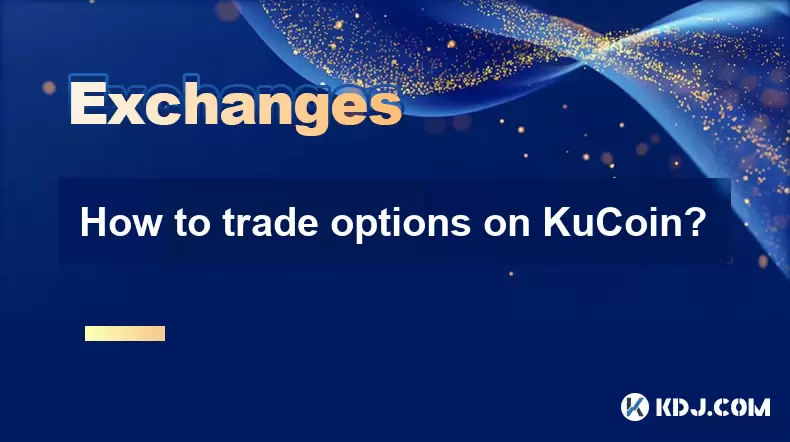-
 Bitcoin
Bitcoin $118400
0.39% -
 Ethereum
Ethereum $3814
2.17% -
 XRP
XRP $3.547
1.34% -
 Tether USDt
Tether USDt $1.000
0.00% -
 BNB
BNB $769.5
2.95% -
 Solana
Solana $191.7
6.36% -
 USDC
USDC $0.9999
0.01% -
 Dogecoin
Dogecoin $0.2722
7.75% -
 Cardano
Cardano $0.8995
5.59% -
 TRON
TRON $0.3158
-0.78% -
 Hyperliquid
Hyperliquid $47.37
4.46% -
 Stellar
Stellar $0.4848
3.54% -
 Sui
Sui $4.031
1.72% -
 Chainlink
Chainlink $20.11
3.94% -
 Hedera
Hedera $0.2832
3.16% -
 Avalanche
Avalanche $26.20
4.27% -
 Bitcoin Cash
Bitcoin Cash $530.5
0.67% -
 Shiba Inu
Shiba Inu $0.00001568
3.59% -
 Litecoin
Litecoin $118.4
1.42% -
 UNUS SED LEO
UNUS SED LEO $8.976
-0.23% -
 Toncoin
Toncoin $3.349
2.54% -
 Polkadot
Polkadot $4.590
2.54% -
 Uniswap
Uniswap $10.56
-0.59% -
 Ethena USDe
Ethena USDe $1.001
0.00% -
 Monero
Monero $327.7
0.39% -
 Pepe
Pepe $0.00001422
2.62% -
 Bitget Token
Bitget Token $4.973
-1.22% -
 Dai
Dai $1.000
0.02% -
 Aave
Aave $331.9
1.59% -
 Bittensor
Bittensor $429.6
-0.56%
Is my money insured on Coinbase?
Coinbase offers crime insurance for digital assets stored on its platform, covering theft from online hot wallets, but it does not provide FDIC insurance for fiat deposits or all types of loss.
Jul 19, 2025 at 05:35 am

Understanding Coinbase and Its Role in Cryptocurrency
Coinbase is one of the most widely used cryptocurrency exchanges globally, allowing users to buy, sell, and store various digital assets. It functions as a centralized platform, meaning that the company controls the infrastructure and user funds are held within its systems. While this provides convenience and ease of use for many, it also raises concerns about security and insurance. One of the most common questions users ask is whether their money is insured when stored on Coinbase.
What Does It Mean for Funds to Be Insured?
When traditional banks offer FDIC insurance, it means that deposits up to a certain amount are protected in case the institution fails or is compromised. However, cryptocurrency exchanges like Coinbase are not banks, and therefore, they are not automatically covered under the Federal Deposit Insurance Corporation (FDIC). This distinction is crucial for users who may assume their digital assets are protected in the same way as fiat currency held in a bank account.
Coinbase’s Approach to Security and Insurance
Coinbase takes security very seriously and has implemented several measures to protect user funds. The company stores the majority of its users' digital assets in offline cold storage, reducing the risk of hacking. Additionally, Coinbase maintains a crime insurance policy that covers losses from theft, including digital asset theft from its systems. This insurance is not the same as FDIC insurance, but it does provide a layer of protection for users.
The policy specifically covers losses from online hot storage, which is a smaller portion of the total assets held by the platform. In the event of a security breach, Coinbase has committed to using this insurance to reimburse users for losses that occur under covered circumstances.
Limitations of Coinbase’s Insurance Coverage
It is important to note that Coinbase's insurance coverage does not extend to all possible scenarios. For example, if a user’s account is compromised due to phishing, malware, or unauthorized access caused by the user’s own actions, those funds may not be recoverable. Similarly, if a user sends cryptocurrency to the wrong address or falls victim to a scam, Coinbase typically cannot reverse the transaction or recover the funds.
Additionally, the insurance policy does not cover fiat currency held in a Coinbase account in the same way that FDIC insurance would. While Coinbase partners with banks to hold fiat currencies like USD, the FDIC coverage applies only to the nominal bank account holder, not necessarily to individual customers. This means that your USD balance on Coinbase may not be directly insured by the FDIC unless Coinbase has structured its accounts in a way that extends coverage to individual users.
Steps You Can Take to Protect Your Funds
To enhance the security of your funds on Coinbase, consider taking the following steps:
- Enable Two-Factor Authentication (2FA): This adds an extra layer of security to your account, making it more difficult for unauthorized individuals to access it.
- Use a Strong, Unique Password: Avoid using the same password across multiple platforms, and consider using a reputable password manager.
- Be Cautious with Email and SMS Security: Since 2FA often relies on email or SMS verification, securing these channels is essential.
- Monitor Account Activity Regularly: Keep an eye on login locations and times, and report any suspicious activity immediately.
- Consider Moving Funds to Cold Storage: For larger amounts of cryptocurrency, consider using a hardware wallet or other offline storage solutions.
Frequently Asked Questions (FAQs)
Q1: Does Coinbase offer FDIC insurance for fiat deposits?
A: Coinbase does not offer FDIC insurance for fiat deposits in the traditional sense. While the company partners with FDIC-insured banks, the coverage may not extend directly to individual user balances unless specified under the account structure.
Q2: Is my cryptocurrency insured if I hold it on Coinbase?
A: Coinbase maintains a crime insurance policy that covers digital assets held in its systems, particularly those stored in online hot wallets. However, this is not the same as FDIC insurance and does not cover all types of loss.
Q3: What happens if Coinbase gets hacked? Will I get my money back?
A: Coinbase has a robust security infrastructure and insurance policy in place to protect against hacking. In the event of a breach, Coinbase has committed to reimbursing users for covered losses from its systems.
Q4: Can I insure my Coinbase account with third-party insurance?
A: Some third-party insurance providers offer cybersecurity or digital asset insurance policies, but they are not commonly available for individual users. Most individual protection comes from the exchange's own policies and user security practices.
Disclaimer:info@kdj.com
The information provided is not trading advice. kdj.com does not assume any responsibility for any investments made based on the information provided in this article. Cryptocurrencies are highly volatile and it is highly recommended that you invest with caution after thorough research!
If you believe that the content used on this website infringes your copyright, please contact us immediately (info@kdj.com) and we will delete it promptly.
- Shiba Inu Dreams vs. Bitcoin Solaris Reality: Decoding the Price Explosion Potential
- 2025-07-22 03:50:13
- Riding the Altseason Wave: Crypto Presales and Wallet Raises to Watch
- 2025-07-22 03:50:13
- Dogecoin Price Prediction: Can DOGE Rally to $1 After Recent Surge?
- 2025-07-22 03:55:12
- Crypto Stocks, Stablecoin Law & Trump: A New Era?
- 2025-07-22 02:30:12
- Kaito, Web3, and Crowdfunding: A New Era of Capital Alignment?
- 2025-07-22 02:30:12
- Saylor, Trump, and Bitcoin: A New York Minute on Crypto's Power Trio
- 2025-07-22 00:50:12
Related knowledge

KuCoin mobile app vs desktop
Jul 19,2025 at 08:35am
Overview of KuCoin Mobile App and Desktop PlatformThe KuCoin ecosystem offers both a mobile app and a desktop platform, each designed to cater to diff...

Is KuCoin a decentralized exchange?
Jul 18,2025 at 03:15pm
Understanding Decentralized Exchanges (DEXs)To determine whether KuCoin is a decentralized exchange, it's essential to first understand what defines a...

How to trade options on KuCoin?
Jul 19,2025 at 03:42am
Understanding Options Trading on KuCoinOptions trading on KuCoin allows users to speculate on the future price movements of cryptocurrencies without o...

What are KuCoin trading password rules?
Jul 20,2025 at 07:56am
Understanding the Purpose of a Trading Password on KuCoinOn KuCoin, a trading password serves as an additional layer of security beyond the standard l...

Who is the CEO of KuCoin?
Jul 20,2025 at 09:35am
Background of KuCoinKuCoin is one of the largest cryptocurrency exchanges globally, known for its diverse range of trading pairs and user-friendly int...

Lost Google Authenticator for KuCoin
Jul 19,2025 at 02:35am
Understanding the Importance of Google Authenticator in KuCoin SecurityGoogle Authenticator is a critical tool used by KuCoin users to enable two-fact...

KuCoin mobile app vs desktop
Jul 19,2025 at 08:35am
Overview of KuCoin Mobile App and Desktop PlatformThe KuCoin ecosystem offers both a mobile app and a desktop platform, each designed to cater to diff...

Is KuCoin a decentralized exchange?
Jul 18,2025 at 03:15pm
Understanding Decentralized Exchanges (DEXs)To determine whether KuCoin is a decentralized exchange, it's essential to first understand what defines a...

How to trade options on KuCoin?
Jul 19,2025 at 03:42am
Understanding Options Trading on KuCoinOptions trading on KuCoin allows users to speculate on the future price movements of cryptocurrencies without o...

What are KuCoin trading password rules?
Jul 20,2025 at 07:56am
Understanding the Purpose of a Trading Password on KuCoinOn KuCoin, a trading password serves as an additional layer of security beyond the standard l...

Who is the CEO of KuCoin?
Jul 20,2025 at 09:35am
Background of KuCoinKuCoin is one of the largest cryptocurrency exchanges globally, known for its diverse range of trading pairs and user-friendly int...

Lost Google Authenticator for KuCoin
Jul 19,2025 at 02:35am
Understanding the Importance of Google Authenticator in KuCoin SecurityGoogle Authenticator is a critical tool used by KuCoin users to enable two-fact...
See all articles

























































































